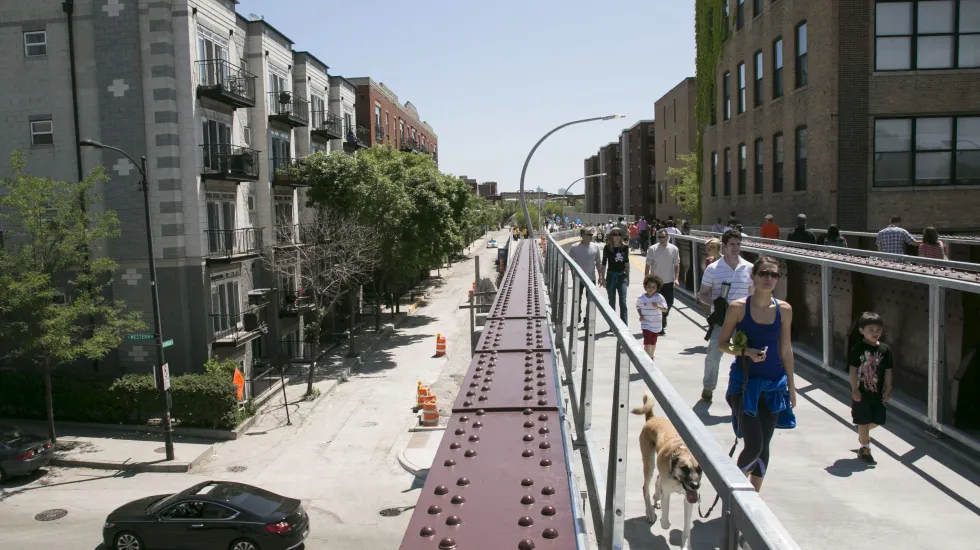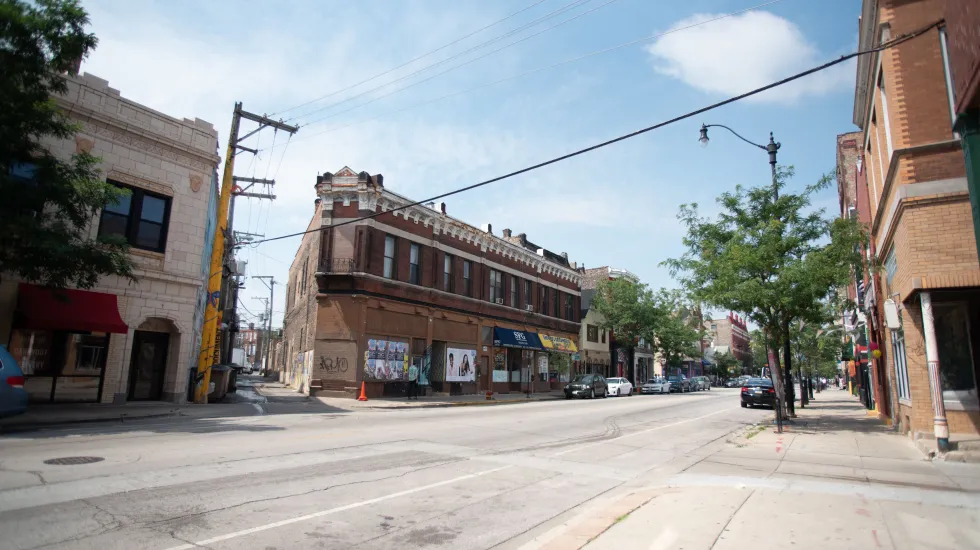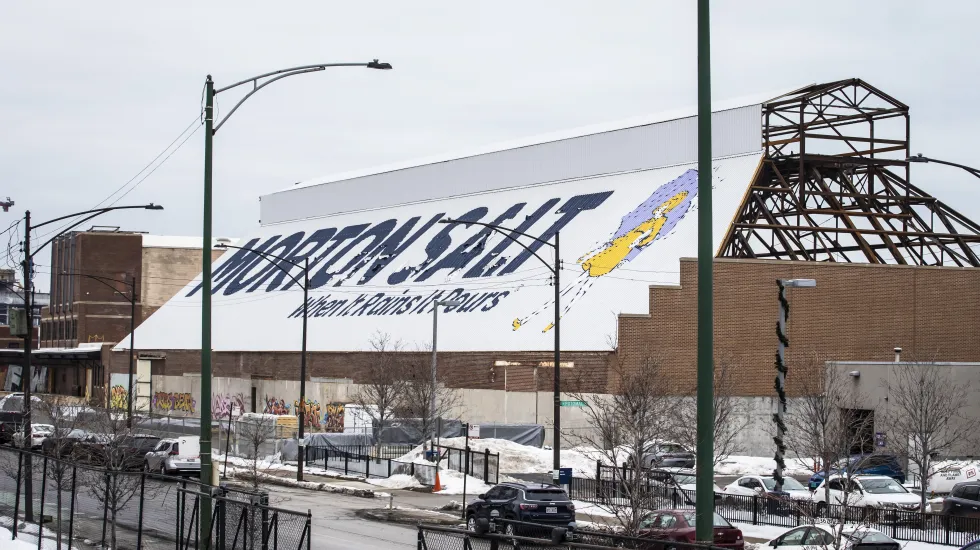
Developers who tear down single-family homes or multi-unit buildings in Pilsen and in neighborhoods along the wildly-popular 606 trail will be penalized for at least two more years, under an extension advanced Monday after rave reviews for the pilot.
Nearly a year ago, the City Council approved Mayor Lori Lightfoot’s one-year pilot plan to impose a $15,000 surcharge for demolishing a “detached house, townhouse or two-flat” and a $5,000-per-unit fee for tearing down multi-unit residential buildings.”
Critics accused the city of “stealing equity” from people who “stuck it out through tough times.” They argued the targeted plan would deny property owners their constitutional guarantee to equal protection under the law.
On Monday, Housing Commissioner Marisa Novara called the pilot program a smashing success and convinced the council’s Finance Committee to extend the demolition fees in both areas until April 1, 2024.
In the year since the fees were imposed, there has been an 88% reduction in demolitions near the 606 trail and a 25% drop in Pilsen.
Despite fears that a parade of developers would simply eat the relatively low penalty as the cost of doing business, there have been only three applications for demolition permits in the 606 area and five in Pilsen.
Together, the eight applications generated $120,000 in demolition fees.

“If the purpose of the surcharge was to deter some demolitions and, where we can’t deter them, raise some funds for affordable housing, then it seems to be doing some of both,” Novara said.
The commissioner noted that $120,000 in demolition fees is “not a lot of money.” But, “in the context of the Chicago Community Land Trust, which is where these funds go, it is actually significant,” she said.
“It means another four opt-in owners can be covered based on that fee,” Novara said.
Logan Square Ald. Carlos Ramirez-Rosa (35th) acknowledged many neighborhoods have seen a decline in demolitions during the pandemic. But the decline was steeper in the pilot areas, he argued.
“That means that this ordinance is working. It’s helping to protect naturally-occurring affordable housing. It’s helping to protect ... our two-to-four-flats, which provide the bulk of our city’s unsubsidized affordable housing,” Ramirez-Rosa said.
He called it “shocking” that, until now, the city has allowed — and even “incentivized” — developers to demolish “upwards of 10 to 15 percent” of the properties in some neighborhoods.
“There are so many vacant lots on the South and West Sides that need to be developed. There’s no reason why developers should be coming and knocking down a perfectly good two-to-four-flat in Logan Square or in Pilsen when they could be developing land that is currently vacant,” Ramirez-Rosa said.
Pilsen Ald. Byron Sigcho-Lopez (25th) noted the two-year extension works together with two anti-deconversion ordinances intended to slow gentrification displacing long-time residents of Pilsen and the neighborhoods of Logan Square, Wicker Park, Humboldt Park and Bucktown that border the 606, officially the Bloomingdale Trail.
Anti-deconversion ordinances “protect density” by making it harder for owners and developers of property on certain blocks to turn their multi-unit buildings into expensive single-family homes.
“The demolition fees … have shown great results. … In our community — with very few exceptions of realtors and speculators — the community has seen, with optimism, that these policies will help protect ... [not only] the density, but also the affordability,” Sigcho-Lopez said.
“We cannot fall into this argument that, somehow, these $15,000 fees for demolition somehow will impact the small homeowner [for the] worse. This will be helpful to the small homeowner or the senior that we’re trying to protect.”
Morton Salt concert venue gets TIF funds; settlements OK’d
The Finance Committee also agreed to spend $3.5 million in tax-increment-financing funds for parking, traffic signal, roadway and pedestrian improvements needed to pave the way for converting the former Morton Salt shed, 1357 N. Elston Ave., into a 4,000-seat concert venue with its own restaurant space.
The famous Morton Salt “umbrella girl” logo will remain, thanks to the landmark status that paved the way for the developers to receive lucrative Class L tax credits.
Also on Monday, the Finance Committee signed off on two settlements: $450,000 to compensate the family of a 66-year-old man killed in April 2017 after colliding with an unmarked police vehicle speeding through Roseland; and $175,000 from a July 2017 crash involving a city employee and a woman left with “severe and permanent injuries.”








